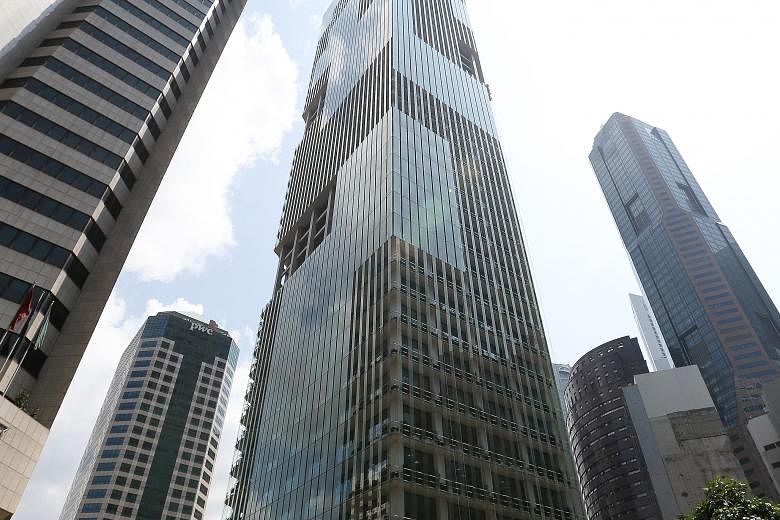The FTSE Straits Times Reit Index, which closed at 703.93 points on Friday, has slumped 8.3 per cent in the past 30 days - its worst correction in about three years - and is down 8.8 per cent for the year.
Analysts told The Straits Times that the index, which tracks various Reit counters on the Singapore Exchange (SGX), has fared poorly as a result of the weak sentiment plaguing global markets.
"S-Reits' price performance have turned increasingly choppy, given the uncertainties over the timing of the United States Federal Reserve rate hikes and the recent yuan devaluation (in China)," noted Mr Derek Tan, DBS Group Research vice-president.
Ms Kum Soek Ching, head of South-east Asia research at Credit Suisse Private Banking & Wealth Management, added that the sector also faces operational headwinds.

"Weaker retail sales, labour shortage, soft tourist arrivals and an increased supply of space, particularly in the office sector, will continue to (affect Reits) in the next six months," she said.
As a result, the average yield spread of the Reit sector over the Singapore 10-year government bond yield - often used as a benchmark for S-Reits - has widened from a low of 3.5 per cent in March to 3.95 per cent, said Ms Kum.
OCBC Investment Research analyst Andy Wong noted that office and hospitality Reits have suffered the most in terms of share price this year.
The biggest losers include CapitaLand Commercial Trust, which has fallen 31 per cent to $1.34 as at Friday, and Far East Hospitality Trust, down 30.4 per cent to 62.5 cents.
Keppel DC Reit, on the other hand, was among the gainers, rising 6.25 per cent to $1.04. Soilbuild Business Space Reit also grew, adding 2.47 per cent to 81 cents.
Mr Wong noted that none of the 23 S-Reits OCBC covers delivered better-than-expected performances in the second quarter.
Worse could follow, he added, noting that it is likely still "too early to call a bottom on the sector".
Mr Wong and fellow analyst Eli Lee last month issued a forecast warning that investors will reap "almost zero" total returns from now until the end of next year.
This could turn around the Reit success story, which has seen mom-and-pop investors typically rely on the investment segment for steady yields.
The sector's muted distribution growth is expected to drop from 3.8 per cent year-on-year this financial year to 2.2 per cent in 2017, as rental outlook weakens across all key sectors - office, retail, industrial and hospitality.
Mr Tan said the outlook remains uncertain, given that Reits are facing "an uncomfortable mix of low growth, heightened currency volatility, coupled with rising risk to distributions from an anticipated rise in interest rates in the medium term".
Investors, for now, should look out for Reits with sustainable growth and low gearing, which mark signs of resilience, he added.
"While we maintain our cautious view on S-Reits, quality (picks) are positioned to provide temporary shelter till the next rate hike."
DBS has put a "buy" call on Mapletree Greater China Trust, with a target price of $1.12, and Frasers Centrepoint Trust, with a target price of $2.05.


